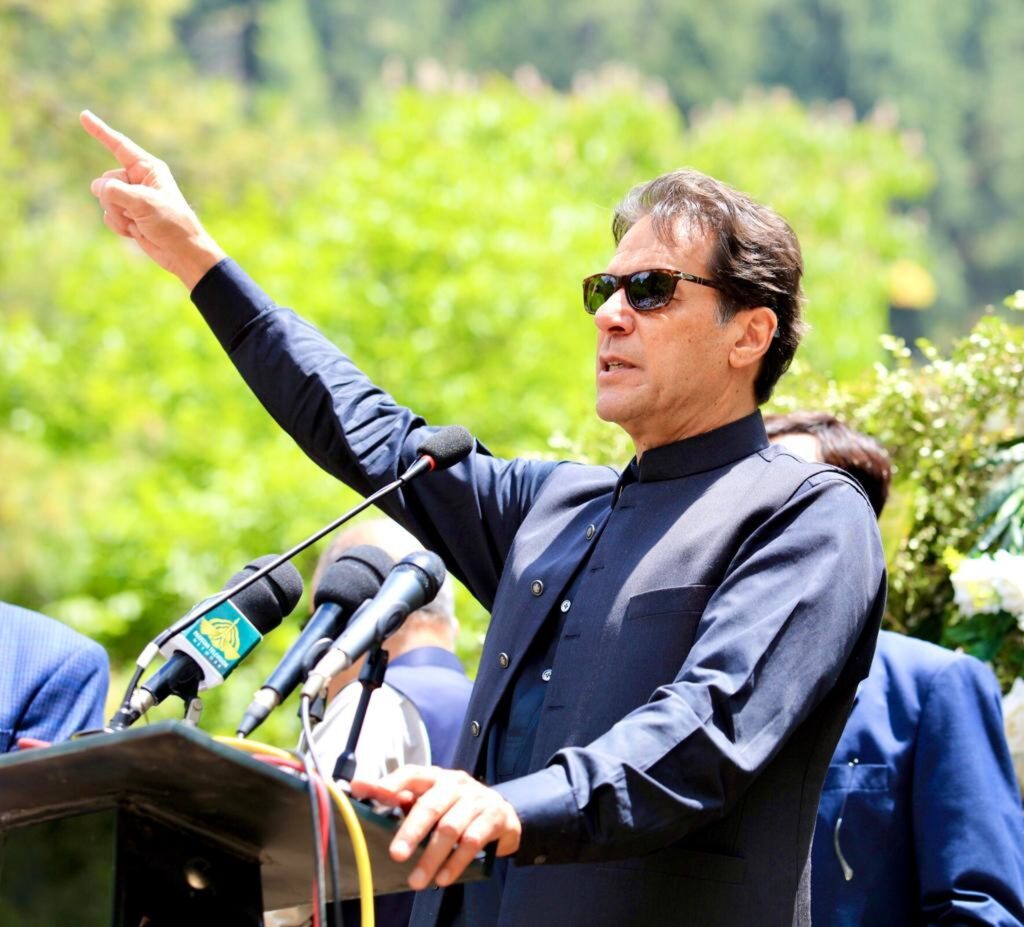Any equitable Kashmir solution depends on a free and independent Pakistan

By Farhan Mujahid Chak
November/December
On Dec. 18, 2010, Lieut. Gen. Hamid Gul (director-general, Inter-Services Intelligence; d.2015) casually affirmed during a live interview at the Islamabad Press Club that “no one becomes the chief of army staff in Pakistan without U.S. approval.” Every now and then, those words come back to haunt the country’s political and military elites. This accusation is not new, for uninhibited political analysts have always understood that Pakistan’s formidable military rules the roost and is in a constant tug-of-war with U.S. hegemony.
Of course, the level of Washington’s influence has always been open to debate, for it depends on who is leading the military establishment and how much the powers that be are willing to antagonize Pakistan’s population to oblige their purported benefactor’s interests. With the April removal of former prime minister Imran Khan from power by a dubious no-confidence vote of people caught red-handed selling their vote, this debate has resurfaced. As such, many are asking “Who controls Pakistan?” After all, U.S. Assistant Secretary of State Donald Lu reportedly demanded Khan’s removal.
Since then, Pakistan has undergone a dizzying decline: skyrocketing energy prices, economic collapse and an unprecedented level of popular revolt accompanied by the worst floods in the last 50 years. To make matters worse, the new government has made many attempts to sideline Khan, even designating Pakistan’s most popular political leader a terrorist. What makes this particularly outrageous is that this charge comes from an illegitimate government, many members of whom are out on bail for serious accusations of financial impropriety. The circus continues to play to its audience while the country falls deeper into crisis. Meanwhile Khan is not backing down — he has held more than dozens mammoth public rallies.
In his World Systems theory, Immanuel Wallerstein (d.2019) describes global order as the unequal distribution of power between the core, mainly the West, and the periphery countries of the Global South. The West’s reach can influence the periphery’s internal political structures through local tame rulers — be they in the political, economic, military or judicial spheres. This leads to the untiring tussle in every post-colonial society between those who work to establish representative governance and those who prefer the corrupt status quo.
Imran Khan Upsets the Status Quo — Again
On one side are the empire’s facilitators or the core’s proprietors, namely, those who excuse their betrayal with such gobbledygook as “enlightened moderation” and enrich themselves while lamenting the punitive austerity measures imposed on the people because “beggars cannot be choosers” (Shehbaz Sharif interview with Shehzad Iqbal, ARY News, April 2). On the other side are those who aim to seize the instruments of state power away from those beholden to market fundamentalism or global hegemony. They seek genuine freedom.
This unforgiving rivalry, which is very real, goes to the crux of the conflict over state power, a brutal struggle further compounded by people vying for their own space. Many don’t want to get involved or have lost hope for change. That is, until now. After being unceremoniously and arguably unlawfully removed from office, Imran Khan has politicized the entire country. His will, commitment and perseverance has energized people like never before. He has made clear who stands on what side of the political spectrum, and his pushback has overwhelmed the deep state.
The enduring issue for him and his supporters is how to remove the instruments of state power from the ruling imposters. In fact, members of this privileged class loathe their compatriots and rule only to institutionalize cronyism, inequality and corruption. This rationalization is required to deliberately obstruct social development, stifle creativity and mock their own people’s ethical values and moral moorings. A further psychological aspect of these unrepresentative elites and their political cronies is that they embody some of the worst Islamophobic tendencies. This is even more insidious, for it occurs inside a Muslim-majority polity being run by those who claim to be Muslim.
Despite all of this, Imran Khan is maneuvering deftly. For example, he swept by-elections in the vital Punjab province by taking 15 out of 20 constituencies (on August 22) and won another by-election in Karachi. This remarkable feat underlines that one can own all the institutions they want, but that it’s the people who matter. If anything, Khan’s victory against the deep state, foreign interference and corrupt political parties is stunning.
Kashmiri Freedom Rests on a Stable Pakistan
Concerning Kashmir, until a semblance of political stability returns to Pakistan and legitimate representatives remove those with questionable integrity from power, the country can offer no meaningful commitment. Even worse, the sitting government is now discussing opening trade links with India and working on the infamous “Musharraf formula” — a former military dictator (2001-08) — essentially maintaining the status quo and accepting the current ceasefire line as a porous border. And this, despite the fact that both India’s deep state and the Kashmiris have already rejected it! Hence, most Kashmiris inside Indian-occupied Kashmir and those working in the diaspora recognize that only a free, independent Pakistan will genuinely support its liberation movement.
At the same time, the Kashmiri diaspora must develop a sophisticated approach to its global resistance while recognizing Pakistan’s internal challenges and redlines. They must never cede control of their movement to those who may bargain away their future, as those puppet rajas in Pakistan have done.
Throughout the broader post-Arab Spring Middle East, of which Pakistan is an essential part, the counterrevolutionary forces operate in conjunction with the deep state and global hegemony. That internal deep state, whether in the form of political parties, judiciary, police or military, undermines the emergence of representative democracy, human rights and the rule of law. Institutions are compromised, parliamentarians are bought and courts are opened at midnight to hear cases and enforce their will over parliamentary supremacy, all in the name of protecting their ill-gotten wealth and dubious fiefdoms.
One could reasonably argue that the deep state looks upon emerging democratic forces with both amusement and disdain. Although it will never willfully forgo the reins of power, it will allow these new political forces to enter the political arena and then undermine them slowly. In fact, the carrot of giving power is slowly being weaponized stripping away at their aura, heighten instability and spread the fake news of “nothing being done.” This subtle character assassination is meant to undermine the growing opposition movement drip by drip, to make it a spent force, as has been happening to grassroots movements in the Middle East.
So far, though, it hasn’t worked. The people, who hold the real power, are entirely and unreservedly standing behind former Imran Khan and his team. And in that, there is hope — both for the Pakistanis and Kashmiris everywhere.
Farhan Mujahid Chak, PhD, secretary-general of Kashmir Civitas (a registered Canadian NGO), is an associate professor of political science at Qatar University and author of “Islam and Pakistan’s Political Culture” (2014).
Tell us what you thought by joining our Facebook community. You can also send comments and story pitches to horizons@isna.net. Islamic Horizons does not publish unsolicited material.
